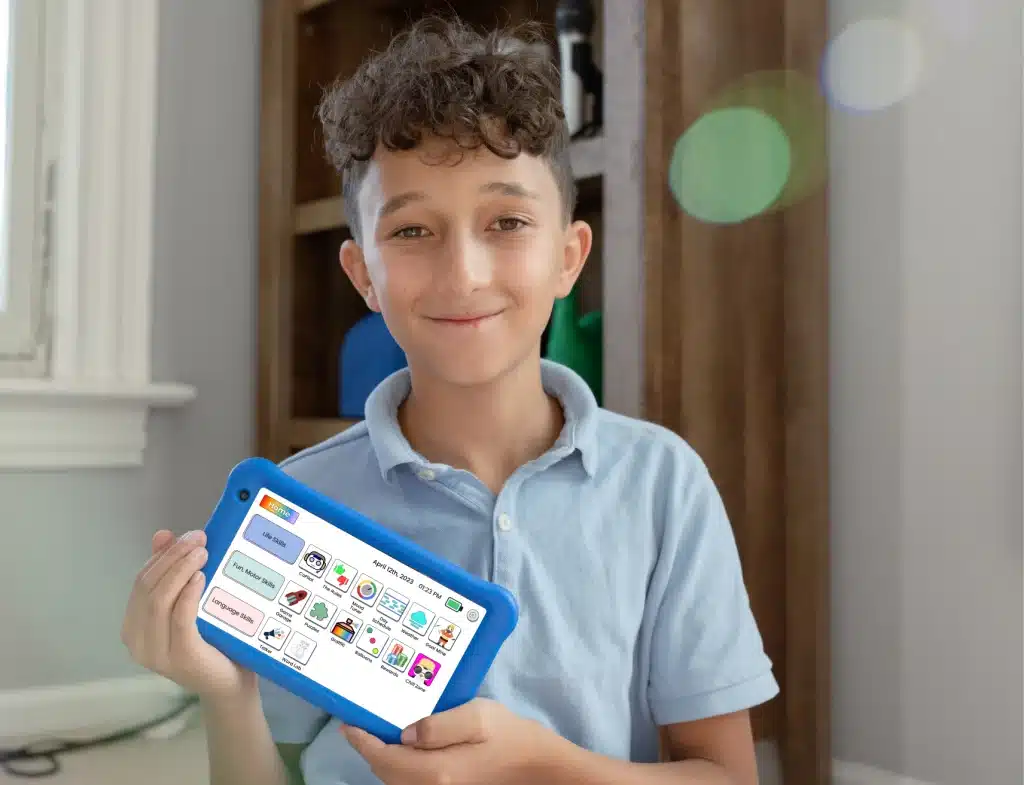As parents, we want our kids to thrive socially. But navigating the world of social interactions can be like walking through a maze blindfolded. However, fear not! This blog post will guide you through creating your own social skills behavior checklist. And the best part? We have an easy-to-use printable PDF waiting for you at the end!
Table of Contents
The Importance of Developing Social Skills in Kids
Firstly, it’s crucial to understand why honing these skills matters so much. Kids with robust social abilities are often more successful in their personal and academic lives.
- Better Communication: Above all, solid social skills enable kids to express themselves clearly and comprehend others better.
- Smoother Relationships: Understanding how to behave appropriately helps kids forge stronger bonds with peers and adults alike.
- Increased Empathy: As they develop these skills, children learn how to perceive and respond sensitively to other people’s feelings – a key aspect of empathy.

Milestones from the Social Skills Behavior Checklist
In this section, we delve into some typical behaviors that indicate good social development at various ages based on our comprehensive social skills behavior checklist.
| Social Skill Milestones by Age Group | |||
|---|---|---|---|
| Ages 2-3 Years Old | Ages 4-5 Years Old | Ages 6-9 Years Old | Ages 10-12 Years Old |
| Beginning to share toys and take turns. | Shows more independence from parents. | Begins to understand other’s feelings. | Demonstrates increased empathy and understanding of complex emotions. |

Give your kid an independent future. Goally has 15+ learning apps that teach life skills. There are NO web browsers, social media, or YouTube.
Our apps teach executive function, language, emotional regulation, finger dexterity skills, and more. It also 100+ video classes teaching social skills.
Crafting Your Social Skills Behavior Checklist
To clarify what makes up this list, here are some core elements that every parent should consider when helping their child enhance their interpersonal abilities.
- Manners Matter: Teaching basic courtesies such as saying ‘please’ or ‘thank you’ is a good starting point on this journey.
- Eyeball Etiquette: In Western cultures, especially, eye contact signifies attentiveness and respect during conversations.
- Listening Skills: A critical aspect of communication is listening. Teach your child to listen actively, show interest and ask relevant questions.
Read more: Autism Social Skills | Parents GuideSocial Skills for Neurodivergent Kids
For neurodivergent kids or those with special needs, mastering social skills can present unique challenges. However, the same principles apply but may need more practice and patience to perfect.
- Structured Play: Structured play activities can help these children learn how to share, take turns, and collaborate with others – all vital elements of social interaction.
- Predictable Routines: Consistent routines offer a sense of security, which can facilitate smoother social interactions for kids who struggle with change or unpredictability.
- Demonstrating Empathy: For some neurodivergent children understanding emotions may be challenging. Demonstrating empathy in real-life situations helps them recognize different feelings.

Read more: 5 Social Skills for ADHD in KidsThe Role of Parents in Developing Social Skills
As parents, you are the primary teachers here! You have a significant role in helping your child navigate this complex web called ‘social interaction.’ By modeling good behavior yourself, reinforcing positive behaviors when you see them, and patiently guiding through missteps –you’re doing more than teaching—you’re shaping their future!
Your Handy Social Skills Behavior Checklist
Above all else we’ve discussed so far comes the practical application – our downloadable PDF checklist! Consider it as an essential tool in helping you track and nurture your kid’s social development journey. The checklist covers key areas like sharing, listening attentively when others speak, respecting personal space and many more! You’ll find this resource helpful as you navigate through the exciting world of teaching social skills!
SPONSORED BY: Goally
Goally’s Kid’s Tablet has one of the largest libraries of skill-building videos (like “How to Share” and “What To Do When You’re Lost”) in the Goal Mine app.👇
To Sum Up
In short, every child grows differently – so remember not to compare yours with others. Above all else, celebrate their unique strengths while helping them improve their social skills. Our social skills behavior checklist is a tool to guide you on this journey, not an exact measure of your child’s abilities.
Remember that fostering strong social skills in your kids today will set the stage for their successful interactions in adulthood. With love, understanding and the right tools at hand like our social skills behavior checklist, you’re more than equipped to guide them on this crucial path.
FAQ about Social Skills Behavior Checklist
1. What is a social skills behavior checklist?
- A social skills behavior checklist is a tool that helps parents and caregivers track their kid's progress in developing key interpersonal abilities.
2. Why should I use a social skills behavior checklist for my kids?
- Using such checklists provides insights into your child’s strengths and areas needing improvement, guiding you to focus on specific skill-building activities.
3. Can the social skills behavior checklist help children with special needs?
- Yes, these checklists can be especially beneficial for neurodivergent kids who might face unique challenges in mastering certain social behaviors.
4. How often should I refer to the social skills behavior checklist?
- The frequency depends on each child but generally, it's helpful to review weekly or after significant events like playdates or school activities.
Hennah is an experienced writer and researcher, helping children with autism, ADHD, and other neurodivergent conditions. As a blog contributor for Goally, she combines her deep understanding of neurodiversity with practical advice, offering valuable insights to parents and educators.






